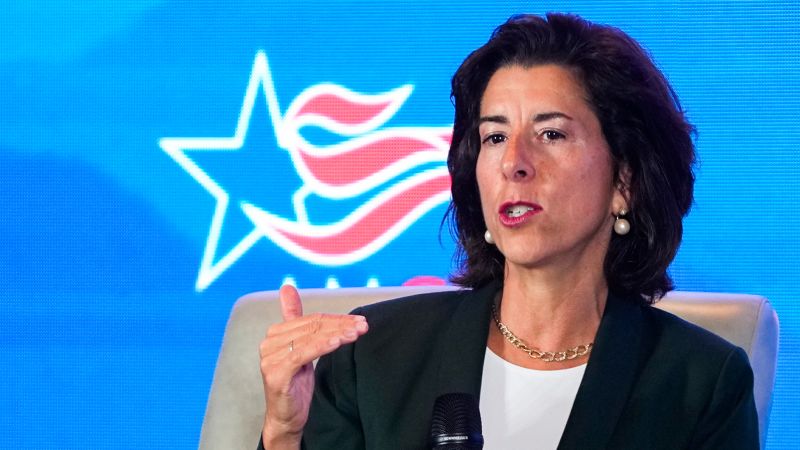US Commerce Secretary Gina Raimondo will visit China at a critical time as China's economy faces challenges that could potentially spread beyond its borders and impact the US relationship with the country, including falling consumer prices, a real estate crisis, slumping exports, and youth unemployment, while China continues its crackdown on foreign companies and a battle over crucial technologies escalates.
US Secretary of Commerce Gina Raimondo's visit to China will test the sincerity of the US in pursuing dialogue, particularly regarding the country's restrictions on tech exports, according to Chinese experts. Both sides remain committed to dialogue despite strained bilateral relations, but the US must demonstrate actual efforts rather than just rhetoric to improve economic and trade relations.
Commerce Secretary Gina Raimondo and her Chinese counterpart have agreed to exchange information on U.S. export controls and establish a working group to discuss trade and investment issues, but no progress has been made on disputes over technology, security, human rights, and tariffs.
U.S. Commerce Secretary Gina Raimondo rejected China's appeal to reduce U.S. export controls on technology with potential military applications but agreed to have experts meet to discuss disputes over protecting trade secrets, as efforts continue to restore strained relations between the two countries.
China defends its business practices and claims that most U.S. firms want to stay, despite Commerce Secretary Gina Raimondo stating that China has become "uninvestible" due to fines, raids, and other actions that make it risky to do business there.
The European Union Chamber of Commerce in China has stated that it would not use the term "uninvestable" to describe China, although it acknowledges that China is "under-invested" and that concerns about the business environment need to be addressed.
US companies are becoming increasingly hesitant to invest in China due to concerns over new anti-spying laws, competition from state-funded firms, and the country's economic challenges such as deflation and a property crisis.
U.S. Commerce Secretary Gina Raimondo plans to meet with major American company CEOs following her recent trip to China, where she expressed concerns about business conditions and hopes for improved market access and regulatory environment.
U.S. and European firms are redirecting their investment away from China to other developing markets, primarily India, due to concerns over China's business environment, economic recovery, and politics, according to a report from Rhodium Group, although China's share of global growth continues to increase.
U.S. companies are losing confidence in China and some are limiting their investments due to tensions between the two countries and China's economic slowdown.
